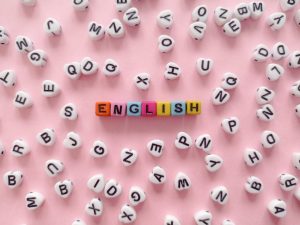The Chemistry IA is an essential component of the International Baccalaureate Diploma Programme, which requires students to submit an independent research paper on a chemistry-related topic. The aim of this paper is to allow students to apply their knowledge and skills to a real-world problem or scenario, demonstrating their understanding of chemistry concepts and principles. In this article, we will guide you through the process of writing a Chemistry IA, from selecting a topic to structuring your paper.

Choosing a Topic
Firstly, your topic should be relevant to the world around us. The goal of the Chemistry IA is to demonstrate your ability to apply your understanding of chemistry to real-world problems or scenarios. As such, your topic should be based on a problem or scenario that is relevant to the world today. For example, you may choose to investigate the impact of pollutants on the quality of water in your local area, or the effectiveness of certain household cleaning products in removing bacteria.
Secondly, your topic should be feasible. This means that you need to be able to conduct research and experiments to answer your research question. Before settling on a topic, it is important to consider the resources and equipment that you will need to conduct your research. You should also consider the ethical implications of your research, and make sure that you are conducting your experiments safely and responsibly.
Finally, your topic should be interesting to you. Writing a Chemistry IA can be a challenging process, and it is important to choose a topic that you are passionate about. Your personal interests and strengths should guide your choice of topic. For example, if you are interested in the effects of different chemical reactions, you may want to investigate the effect of different concentrations of a reactant on the rate of reaction.
Now, let’s look at some potential topics for your Chemistry IA. Remember that these are just a few examples, and you should choose a topic that is of interest to you and that meets the criteria we have discussed.
The effect of different concentrations of a reactant on the rate of reaction
In this topic, you would investigate the effect of different concentrations of a reactant on the rate of reaction. You could choose any chemical reaction that interests you, such as the reaction between hydrochloric acid and magnesium.
The effect of temperature on the solubility of a substance
In this topic, you would investigate the effect of temperature on the solubility of a substance. You could choose any substance that you are interested in, such as sugar or salt.
The determination of the acid content in fruit juice
In this topic, you would investigate the acid content in different types of fruit juice. You could use a titration method to determine the acid content, and compare the results of different types of fruit juice.
The comparison of different brands of sunscreen for their effectiveness in blocking UV radiation
In this topic, you would compare the effectiveness of different brands of sunscreen in blocking UV radiation. You could use a UV spectrophotometer to measure the amount of UV radiation that penetrates the skin with and without different types of sunscreen.
Remember that these are just a few examples of the vast array of potential Chemistry IA topics. You should choose a topic that is interesting to you, feasible, and relevant to the world around us. With a clear and well-defined research question, you can conduct research and experiments that contribute to the field of chemistry and demonstrate your understanding of chemistry concepts and principles.
Planning and Research
Planning and conducting research is an essential part of writing your Chemistry IA. This step involves developing a well-defined research question, ensuring ethical and safe research practices, and collecting and organizing data.
The first step in planning your research is to develop a well-defined research question. Your research question should guide your investigations and provide a clear focus for your work. Your research question should be specific, measurable, achievable, relevant, and time-bound (SMART). For example, a SMART research question could be “What is the effect of different concentrations of vinegar on the rate of reaction between baking soda and vinegar?”.
Once you have developed your research question, it is important to ensure that your research is conducted in an ethical and safe manner. This means that you should consider the potential risks and benefits of your research, and ensure that you are using appropriate safety equipment and procedures. If you are conducting experiments on human or animal subjects, you will need to obtain ethical approval before beginning your research.
When conducting your research, you may need to conduct experiments, collect data, and make observations. It is important to keep detailed notes of all your methods and procedures, as well as any unexpected results or observations. You should also organize your data and observations in a logical manner, so that you can easily analyze and present your results.
To collect data, you may need to use a range of methods, such as conducting experiments, performing calculations, or using computer simulations. You should ensure that your data is accurate and reliable, and that you are using appropriate methods to collect and analyze your data.
Once you have collected your data, it is important to analyze and interpret your results. You may use a range of methods to analyze your data, such as statistical analysis, graphs, or diagrams. You should consider any patterns or trends in your data, as well as any unexpected results or outliers.
Organizing your data and observations in a logical manner is also important for presenting your results. Your data should be presented in a clear and concise manner, using appropriate tables, graphs, and figures to illustrate your findings. You should also provide a detailed explanation of your methods and procedures, so that other researchers can replicate your work.
In summary, planning and conducting research is a critical part of writing your Chemistry IA. Your research should be based on a well-defined research question, and should be conducted in an ethical and safe manner. Collecting and organizing data, as well as analyzing and interpreting your results, is an essential step in presenting your findings in a clear and concise manner. By following these steps, you can ensure that your Chemistry IA is a high-quality, original piece of work that demonstrates your knowledge and skills in the field of chemistry.
Want to slay your IA without the late-night stress? Our pros are here to provide you with a flawless paper, crafted to perfection. From research to final edits, we handle it all, so you can keep your cool and score high. Buy Internal Assessment today and have a stress free day and night.
Buy IB IA with Full Confidentiality!
Grab your IB IA with full privacy guaranteed.
Our no-leak policy keeps your details 100% secure.

Structuring Your Paper
Structuring your Chemistry IA is an essential step in writing a clear and coherent paper. A well-structured paper follows a logical sequence, with each section building on the previous one. The typical structure of a Chemistry IA includes an introduction, methodology, results, discussion, and conclusion.
The introduction provides the reader with an overview of your research question, the context of your study, and the purpose of your research. It should be written in a clear and concise manner, and should include a statement of your hypothesis or research aim. In addition, you should provide a brief outline of the main points that you will be discussing in your paper.
The methodology section should describe the methods and procedures that you used to conduct your research. This section should be detailed enough to allow other researchers to replicate your study, and should also provide a justification for the methods that you used. You should describe your materials and equipment, as well as your experimental design and procedures.
The results section is where you present your findings in a clear and concise manner. You may use graphs, tables, and diagrams to illustrate your data, and you should provide a brief summary of your results. It is important to be precise and accurate in your presentation of data, and to ensure that your results are presented in a way that is easy to understand.
In the discussion section, you analyze and interpret your results, making connections to the broader context of your study. This is the section where you explain the significance of your findings, and where you consider any limitations or sources of error in your study. You should also suggest areas for future research, and highlight the implications of your research for the field of chemistry.
In the conclusion, you summarize your key findings and highlight the implications of your research. You should also reflect on the strengths and limitations of your study, and make recommendations for further research. Your conclusion should be written in a clear and concise manner, and should leave the reader with a clear understanding of the significance of your research.
When structuring your Chemistry IA, it is important to ensure that each section is clearly linked to the others, and that the paper as a whole follows a logical and coherent sequence. Your paper should be well-organized, with each section building on the previous one, and should be written in a clear and concise manner.
Learn more about how the IB Chemistry IA rubric breaks down each section and find tips to boost your performance in our full breakdown.
Writing and Editing
Writing and editing are critical steps in producing a high-quality Chemistry IA. Your writing should be clear, concise, and engaging, and it should demonstrate your understanding of chemistry concepts and principles. In addition, your paper should be well-structured and follow a logical sequence.
When writing your paper, it is important to ensure that your writing is clear and concise. This means using simple, straightforward language that is easy to understand. You should also avoid using jargon or technical terms that may be unfamiliar to your reader. Your writing should be engaging, and should hold the reader’s attention throughout your paper.
To ensure that your paper is well-structured, you should make sure that each section of your paper is clearly linked to the others, and that the paper as a whole follows a logical sequence. You may want to use headings and subheadings to help organize your paper and make it easier to read. You should also ensure that each paragraph has a clear topic sentence that links back to your research question.
When editing your paper, you should pay close attention to grammar, spelling, and punctuation errors. These errors can detract from the clarity and effectiveness of your writing, and can make your paper difficult to read. You should also check that your references are accurate and that your citations follow the appropriate citation style, such as APA or MLA.
It is also important to consider the overall style and tone of your paper. Your paper should be written in a professional, academic style, but it should also be written in a friendly and engaging tone. You should aim to connect with your reader and make your research interesting and accessible.
In addition to grammar and style, you should also consider the accuracy and validity of your research. You should ensure that your research is based on credible sources and that your methods are appropriate and ethical. You should also consider any limitations or sources of error in your study, and explain how these limitations may have impacted your results.
Finally, it is important to consider the feedback of others when editing your paper. You may want to share your paper with your teacher or peers, and ask for feedback on your writing, structure, and research. This feedback can help you to identify areas where you can improve your work and produce a high-quality Chemistry IA.
Citations and References
Citations and references are a critical part of writing a Chemistry IA. Proper citation not only helps you avoid plagiarism, but it also shows that you have conducted thorough research and have used credible sources to support your arguments. Using a recognized citation style, such as APA or MLA, is essential to ensure that your references are accurate and complete.
To cite your sources correctly, you should include in-text citations in the body of your paper, and a reference list at the end of your paper. In the in-text citations, you should include the author’s name and the year of publication. For direct quotations, you should include the page number as well. The format of the citation will depend on the citation style that you are using, so it is important to familiarize yourself with the specific requirements of the style you have chosen.
In the reference list, you should include the full citation details for all the sources that you have used in your paper. This includes the author’s name, the title of the work, the date of publication, and the publisher or website where the work was found. The format of the citation will depend on the type of source you are citing, such as a book, journal article, or website.
It is important to ensure that your references are accurate and complete, and that they are consistent with the citation style that you are using. This means checking that the author’s name, date of publication, and other details are correct, and that the format of the citation is consistent throughout your paper.
When citing sources, it is also important to give credit where credit is due. This means acknowledging the contributions of other researchers and scholars, and demonstrating how their work has influenced your own research. By citing your sources correctly, you are showing respect for the work of others and contributing to the academic community.
Conclusion
In conclusion, crafting a Chemistry IA can be both challenging and rewarding. It demands meticulous planning, research, and writing, along with a solid grasp of chemistry concepts and principles. By adhering to the steps outlined in this article, you can create a top-notch Chemistry IA that showcases your knowledge and abilities while making a significant contribution to the field of chemistry.
Remember to select an appropriate topic, plan and execute your research ethically and safely, logically structure your paper, and accurately cite your sources. By keeping these tips in mind, you can confidently tackle the task of writing a Chemistry IA and produce a paper that meets the stringent standards of the IB Diploma Programme.
- Last edit 17 JUL 2024

Nick Radlinsky
Nick Radlinsky is a passionate educator, marketer, and management expert with over 15 years of experience in the education sector. After graduating from business school in 2016, Nick embarked on a journey to earn his PhD, fueled by his dedication to making education better for students everywhere. His extensive experience, beginning in 2008, has made him a trusted authority in the field.
Nick's groundbreaking article, published in Routledge's "Entrepreneurship in Central and Eastern Europe: Development through Internationalization," showcases his keen insights and commitment to improving the educational landscape. Guided by his motto, "Make education better," Nick's mission is to simplify students' lives and promote efficiency in learning. His innovative ideas and leadership have helped transform countless educational experiences, setting him apart as a true pioneer in his field.




